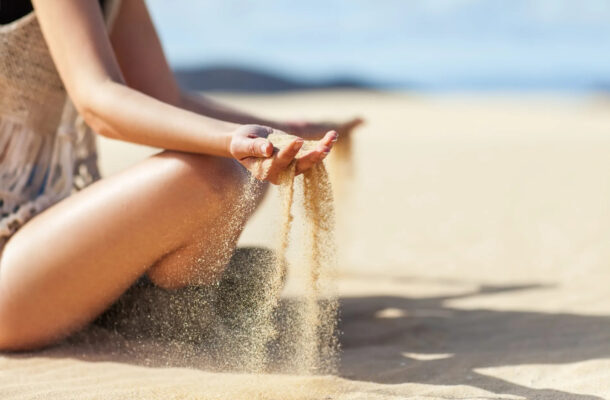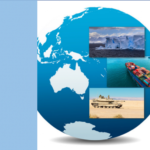Getting through the holidays

As the year draws to a close and we find ourselves hurtling through the frenetic final weeks, the prospect of a well-deserved holiday looks more like an impending brick wall than a tropical beach house.
The Monash Centre for Consciousness and Contemplative Studies (MC3S) team has had a huge year, and like many others, are racing to tie up the loose ends of 2023 before a well-earned holiday break.
But with these next weeks feeling like a pressure cooker (apologies for all the mixed metaphors!), making the transition from the relentless hustle to a state of relaxation can be a daunting task.
M3CS’ Director of Innovation, Megan Flamer, sat down with the centre’s Director of Education (and vacations), Professor Craig Hassed, to talk through how to prepare for a stress-free and rejuvenating holiday season so you can truly relish your upcoming time off.
Rediscover your inner brake pedal
The pace of modern life can be relentless, and as the holiday season approaches, the pressure can intensify. Professor Hassed’s first piece of advice is an invitation to tap the inner brake pedal, slow down, and ease into the holiday season.
“Instead of sprinting full-tilt into the festivities, consider taking a moment to evaluate your pace,” he says. “Identify the essential tasks and responsibilities, and allow yourself the luxury of a gentle start to the vacation period.”
In the rush to meet end-of-year deadlines and navigate the frenzy of holiday preparations, the concept of slowing down might seem counterintuitive.
However, this intentional deceleration can prevent the abrupt collapse that often follows a period of sustained intensity. It’s an opportunity to find moments of tranquillity amid the chaos, fostering a sense of ease as you transition into holiday mode.
Mindful management of energy
The holiday season is notorious for disrupting sleep patterns and introducing myriad demands that can leave us feeling drained. Professor Hassed emphasises the significance of being mindful of our energy levels, particularly concerning sleep and caffeine consumption.
It’s a call to prioritise self-care amid the seasonal chaos.
As the social calendar fills with festive gatherings and obligations, it’s tempting to sacrifice sleep to accommodate the myriad activities.
However, maintaining a consistent and sufficient sleep schedule is paramount for overall wellbeing. Quality sleep not only rejuvenates the body, but also enhances cognitive function and emotional resilience.
Unplug from technology
In an era dominated by digital connectivity, the siren call of work emails and notifications can disrupt even the most well-intentioned vacation plans. Professor Hassed (trigger warning – he doesn’t own a mobile phone!) advises a deliberate and mindful disconnection from technology during the holiday break.
“Just put the phone down; even better, throw it out the window!” he says. “There might be an urge to check it, but try and surf that urge. Give yourself a bit of space, and after two or three days, the addiction centres will start to quiet down a little bit.”
The addiction centres in the brain, accustomed to the constant stimuli of emails and notifications, may initially rebel against this intentional detachment, but just ride the waves of panic and disorientation. The key is to give yourself the gift of clear air – physically and mentally.
By resisting the temptation to check emails, you create space for mental rejuvenation. It’s a conscious decision to step away from the demands of work and immerse yourself fully in the holiday experience.
Crafting an effective out-of-office email message can also play a crucial role in setting boundaries. Turning off notifications and establishing a clear communication plan with colleagues can help create a buffer between work responsibilities and the precious moments of relaxation and celebration.

Create white space in your diary
In a world filled with commitments and obligations, the idea of leaving white space in your schedule might seem counterintuitive.
However, Professor Hassed emphasises the importance of avoiding the temptation to fill every moment with activities. Instead, he encourages individuals to create moments of stillness and spontaneity.
“By consciously leaving some white space in your diary, you provide room for serendipity and relaxation,” he says. “This intentional breathing space allows for a more leisurely and stress-free vacation experience.”
The key is to strike a balance – by resisting the urge to overcommit and allowing for unstructured time, you open the door to unexpected joys and the genuine enjoyment of the holiday season.
Embrace mindfulness and presence
Perhaps the most crucial strategy for a lower-stress holiday is to embrace mindfulness. Professor Hassed points out that being fully present means enjoying the simple pleasures, and immersing oneself in the present experience helps us savour the moment.
It’s an invitation to be childlike in our wonder, and fully engage with the richness of the holiday season.
Mindfulness, in this context, extends beyond formal practices such as meditation. It involves consciously directing your attention to the current moment, whether you’re sharing a meal with loved ones, taking a leisurely walk, or revelling in the beauty of nature.
By being present, you alleviate the mental burden of thinking about the many tasks that may lie ahead.
“During the holiday season, there’s a pervasive tendency to either dwell on the past or worry about the future,” he says.
“Mindfulness serves as an antidote to this mental time-travel. Whether you’re relishing the taste of festive dishes, appreciating the laughter of friends and family, or taking a moment to bask in the sunshine, mindfulness allows you to anchor yourself in the present.”
“Oh, and if you’re enjoying a glass of champagne or Heathcote shiraz, really taste it, don’t chug it!” Professor Hassed says with a laugh.
No matter your holiday plans this year, we hope these tips will help you have a truly enriching and relaxing time. It’s not merely about surviving the holidays, but about embracing them with a sense of mindfulness, balance, and joy.
So, step into your vacation with intention, savour the moments, and create lasting memories that will carry you into the coming year with a refreshed spirit and a sense of fulfilment.
This article was written by Megan Flamer, the Director of Innovation and Capability at the Centre for Consciousness and Contemplative Studies; and Craig Hassed, a Professor at the Centre for Consciousness and Contemplative Studies. It was published by Lens.
Megan Flamer is the Director of Innovation at Monash University’s Centre for Consciousness and Contemplative Studies. She previously served as the University’s Head of Startup Programs.












